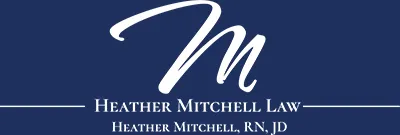
Source: National Library of Medicine: https://www.ncbi.nlm.nih.gov/books/NBK519065/
Rayhan A. Tariq; Rishik Vashisht; Ankur Sinha; Yevgeniya Scherbak.
Author Information and Affiliations
July 3, 2022.
Causes of Medication Errors
Expired Product
Usually occurs due to improper storage of preparations resulting in deterioration or use of expired products.
Incorrect Duration
Duration errors occur when medication is received for a longer or shorter period of time than prescribed.
Incorrect Preparation
This error usually occurs with compounding or some other type of preparation before the final administration. An example is choosing the incorrect diluent to reconstitute.
Incorrect Strength
Incorrect strength may potentially occur at many points in the medication process. It usually occurs due to human error when similar bottles or syringes with the incorrect strength is selected.
Incorrect Rate
Most often occurs with medications that are given as IV push or infusions. This is particularly dangerous with many drugs and may result in significant adverse drug reactions. Examples include tachycardia due to rapid IV epinephrine or red man syndrome due to the rapid administration of vancomycin.
Incorrect Timing
In both home and institutional settings, it is challenging to be completely accurate with scheduled doses. The concern is that some medication’s absorption is significantly altered if taken with or without food. As such, it is important to adhere to scheduled times as commonly; this may lead to under or overdosing.
Incorrect Dose
This error includes overdose, underdose, and an extra dose. An incorrect dose occurs when an inappropriate or different medication dose is given other than what was ordered, errors of omission when a scheduled dose of medication is not given, and when a drug is given via an incorrect route. Errors due to incorrect routes usually occur due to unclear labeling or tubing that is adaptive to multiple connectors/lines of access. Incorrect routes often result in result in significant morbidity and mortality.[26][27][28]
Incorrect Dosage Form
This occurs when a patient receives a dosage form different than prescribed, such as immediate-release instead of extended-release.
Incorrect Patient Action
This occurs when a patient takes a medication inappropriately. Patient education is the only way to prevent this type of error.
Known Allergen
Dispensing a drug that the patient has an allergy often due to failure to communicate with the patient, inappropriate chart review, inaccurate charting, or lack of technological interface.
Known Contraindication
This occurs when medications are not vigilantly reviewed for drug-drug, drug-disease, or drug-nutrient interactions.
Pharmacist
Errors by pharmacists are usually judgmental or mechanical. Judgmental errors include failure to detect drug interactions, inadequate drug utilization review, inappropriate screening, failure to counsel the patient appropriately, and inappropriate monitoring. A mechanical error is a mistake in dispensing or preparing a prescription, such as administering an incorrect drug or dose, giving improper directions, or dispensing the incorrect dose, quantity, or strength.
The most common causes involve workload, similar drug names, interruptions, lack of support staff, insufficient time to counsel patients, and illegible handwriting.
Distractions
One of the major causes of medication errors is distraction. Nearly 75% of medication errors have been attributed to this cause. Physicians have many duties in a hospital (e.g., examining patients, ordering laboratory and imaging studies, speaking to consultants, rounding on their patients, speaking to patient family members, conversing with insurance carriers before ordering studies), and in the midst of all this, they are often asked to write drug orders and prescriptions. In the rush to be done with writing drug orders, sometimes a lapse of judgment develops, and a medication error occurs. It can happen to the best physician. Sometimes the physician may be on the phone, and a clinician may be standing with the order chart next to him or her asking for a drug order. The physician may quickly scribble in a drug order, not paying attention to the dose or frequency. It is the unscheduled events in the life of a healthcare provider such as the constant pages, attendance at meetings, and answering telephone calls that disrupt patient care. Many physicians do not acknowledge that these distractions are a problem, but in reality, these distractions are often the cause of medication errors.[29]
To minimize distractions, hospitals have introduced measures to reduce medication errors. Most hospitals are working on ways to decrease distractions to ensure that medication orders do not occur. For example, physicians are urged to order drugs at a set time after rounding on their patients; this is when they also write their daily progress notes. Other clinicians are requested not to disturb the physician at this time of the day. Also, clinicians are asked only to disrupt the physician for an emergency. Physicians are being urged to develop a structure for their patient care that is organized so that distractions are limited. While answering a page is often necessary, many hospitals recommend that physicians not answer patient calls until patient duties are completed. Additionally, healthcare institutions are now penalizing physicians who continue to have too many medication errors because of distractions; the result is a restriction in prescribing privileges.
Of course, not all distractions can be eliminated because the practice of medicine is itself unpredictable and chaotic at the best of times.
Distortions
A prevalent cause of medication errors is distortions. The majority of distortions may originate from poor writing, misunderstood symbols, the use of abbreviations, or improper translation. A significant number of healthcare providers in the United States are from foreign countries and often write orders for medications that are not even available domestically. When a practitioner questions the drug, the physician often asks the nurse or pharmacist to substitute the medication prescribed for a similar drug. This type of distortion can lead to major errors because neither the non-prescribing practitioner nor the pharmacist can substitute a drug. All hospital pharmacies have a list of medications available in the formulary, and doctors should know what is available and limit the ordering from this list.
Illegible Writing
Illegible writing has plagued both nurses and pharmacists for decades. Physicians are often in a hurry and frequently scribble down orders that are not legible; this often results in major medication mistakes. Taking shortcuts in writing drug orders is a prescription for a lawsuit. Often the practitioner or the pharmacist is not able to read the order and makes their best guess. If the drug required is a dire emergency, this also adds more risk to the patient. To eliminate such errors, most hospitals have rules that practitioners and pharmacists have to follow; if the drug order is illegible, the physician must be called and asked to rewrite the order clearly. The practitioner or the pharmacist should never guess what the drug/dose is. The bad writing by physicians has become such a major problem that the Institute of Safe Medication Practices has recommended the complete elimination of handwritten orders and prescriptions. This problem has been resolved using electronic records where everything is typed, and poor writing is no longer an issue; however, errors still can occur from writing the wrong drug, dose, or frequency.[30][31]
If you are looking for a Medical Malpractice Attorney in Oklahoma to assist with your case, CONTACT US for a FREE CONSULTATION.
There is NO FEE UNTIL RECOVERY.


